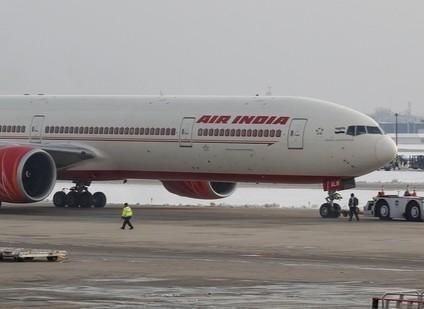
Air India may face ₹5,000-crore loss as Pak shuts airspace: Report
In a recent development, Air India is estimated to incur a massive loss of ₹5,000 crore (approximately $591 million) if Pakistan’s airspace remains shut for a year. This shocking revelation comes after the Pakistan government imposed a ban on Indian flights in its airspace following the terror attack in Pahalgam.
According to a report by Reuters, the national carrier has written to the Union Ministry of Civil Aviation, highlighting the significant financial burden it may face due to the prolonged ban. The letter cited increased fuel costs as one of the primary reasons for the expected loss. As planes are forced to take longer routes to avoid Pakistani airspace, fuel consumption increases, resulting in higher operational costs.
To put this into perspective, Air India’s fleet of Airbus A320 and Boeing 777 aircraft typically fly over Pakistan’s airspace to reach destinations in the Middle East, Europe, and the United States. However, with the ban in place, these flights are being re-routed, leading to increased fuel consumption and costs.
The report highlights that Air India has been seeking a solution to this issue, particularly in light of the ongoing tensions between India and Pakistan. The airline has urged the government to take steps to lift the ban and restore normal operations in the region.
This development comes as no surprise, given the ongoing diplomatic tensions between the two nations. In February 2020, Pakistan closed its airspace to all international flights following the Indian Air Force’s (IAF) surgical strikes in Balakot, Pakistan. India responded by imposing a ban on Pakistani airspace as well.
The ban has had a significant impact on Air India’s operations, particularly on its international routes. The airline has been forced to re-route its flights, leading to increased costs, delays, and cancellations. To make matters worse, Air India has been struggling with financial woes, and any additional burden could have far-reaching consequences for the airline.
The Indian government has taken several steps to counter Pakistan’s actions. In response to the Pulwama terror attack, India carried out airstrikes in Pakistan, which led to further escalation. Since then, both countries have imposed restrictions on each other’s airspace.
In addition to the financial implications, the ban has also affected passenger traffic and airline operations. Several international airlines, including Emirates, Turkish Airlines, and Qatar Airways, have been forced to re-route their flights, leading to increased travel times and costs for passengers.
The Indian government has been working to resolve the issue, engaging in diplomatic efforts to convince Pakistan to lift the ban. In recent months, there have been reports of secret talks between the two nations to resolve the airspace ban.
While the exact timeline for the resolution of this issue remains unclear, one thing is certain – Air India’s financial health is at stake. With the airline already struggling to stay afloat, the additional costs incurred due to the ban could be the final nail in the coffin.
Conclusion
As the stalemate between India and Pakistan continues, Air India is facing an unprecedented financial crisis. The estimated loss of ₹5,000 crore due to the prolonged ban on Pakistani airspace is a stark reminder of the devastating impact of diplomatic tensions on the airline industry.
As the situation unfolds, it is crucial for the Indian government to take immediate action to resolve the issue and restore normal operations in the region. The fate of Air India hangs in the balance, and any delay could have far-reaching consequences for the airline’s financial health and the overall aviation industry.
Source:






